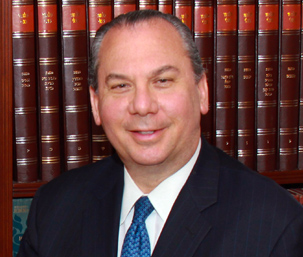
The Times of Israel
By Rabbi Marc Schneier
Next week, on Rosh Hashanah, the Jewish community will gather together to read the Torah portion detailing one of the earliest and most troubling family rivalries in human history – but one whose resolution can provide us all with a measure of hope for a better tomorrow.
The Torah reading tells the story of the forced exodus of Hagar and her son Ishmael from the home of Abraham due to a bitter feud with Sarah. Sent into the wilderness, the resentment and estrangement which were borne out by Hagar and her son served as the catalysts for a generations-old conflict between the children of Ishmael and the children of Isaac — dynasties which would evolve into the communities that are today known as Muslims and Jews.
Yet, despite the fact that the bitterness would last generations – arguably until today – the biblical narrative ends on a hope-filled note: the two children of Abraham joined together in their time of mutual sorrow, when forced to bury their father. Conflict and bitterness were overcome. Hostilities were ignored and reunification — reconciliation, even — ensued between Isaac and Ishmael.
 Close to 4,000 years later, one would be have to be wholly dismissive to ignore the fact that there are vast ideological, cultural and religious differences that continue to drive our communities apart. With a conflict all too often defined by politics and regional tensions, the concept of true ethnic understanding between Muslim and Jew is an anomaly.
Close to 4,000 years later, one would be have to be wholly dismissive to ignore the fact that there are vast ideological, cultural and religious differences that continue to drive our communities apart. With a conflict all too often defined by politics and regional tensions, the concept of true ethnic understanding between Muslim and Jew is an anomaly.
But despite the critics and the naysayers — or perhaps because of them — we owe it to the future of not just the Muslim and Jewish people, but indeed all of humanity, to take a second look at the realities and recognize that there is far more that unites us than divides us. The obstacles and challenges that we face as communities are often shared ones, and our mutual aspirations for tolerance of the other and a world defined by peace and understanding are certainly common goals.
Indeed, as Muslims and Jews we share both a common faith and common fate.
Earlier this month, in Paris, I had the honor and privilege to convene over 80 Jewish and Muslim leaders from 22 countries to promote the idea of mutual understanding and mutual respect. The consensus reached at that gathering, like the many others I have chaired, is that we face a collective responsibility to transcend our differences and to sustain the dialogue between us.
When confronting the challenges of a rabbi being attacked on the streets of Berlin by a gang of Muslim youth or Jewish schoolchildren assaulted by a Muslim group on their way to class, European imams and Muslim clerics in attendance issued a call for “zero tolerance.” This act of solidarity was reminiscent of European Jewish leaders speaking out against legislation to ban minarets in Switzerland.
Confronting the legislation prohibiting religious circumcision in Germany, we expressed our condemnation of laws that prevent a sacred rite for Muslims and Jews. How ironic that, in response to these and other attacks, Muslim and Jewish leaders are now engaged in cooperative efforts. But even in areas where we might not share a specific mutual concern, we must not turn our back to the needs of the other.
In the spirit of Isaac and Ishmael’s reconciliation so many centuries ago, we stand together as Muslims and Jews in defending the sacred rituals of animal slaughter, circumcision, burial and other religious practices.
Among the prayers for health, prosperity and sustenance that will resonate at our High Holidays services, let us remember the lessons of our forefathers and add a prayer for genuine reconciliation between Muslims and Jews worldwide.
 Marc Schneier
Marc Schneier
Rabbi Marc Schneier is the president and founder of the Foundation for Ethnic Understanding. A trailblazer in the field of Muslim-Jewish relations, Schneier created and spearheaded the annual Weekend of Twinning’s of Mosques and Synagogues across the globe; the annual meetings of the Gathering of European Muslim and Jewish Leaders (GEMJL) in Paris and Brussels; multiple unity missions to the United States by Muslim and Jewish Leaders from around the world; and the first Summit of Rabbis and Imams. Rabbi Schneier and Imam Shamsi Ali are the co-authors of Sons of Abraham: A Candid Conversation about the Issues that Divide and Unite Jews and Muslims.
Copyright © 2025 Foundation For Ethnic Understanding. All rights reserved. | Privacy Policy